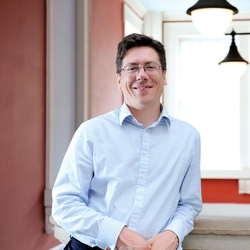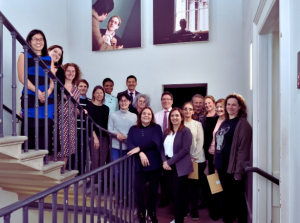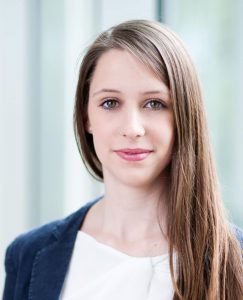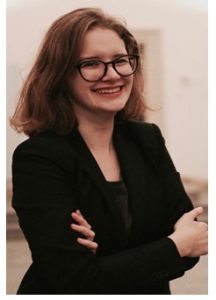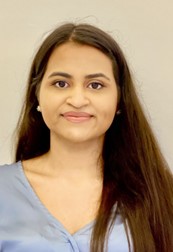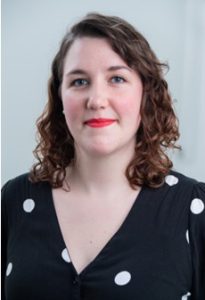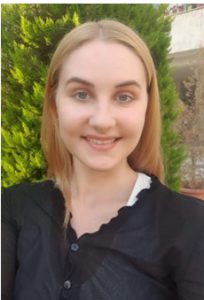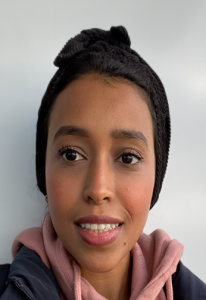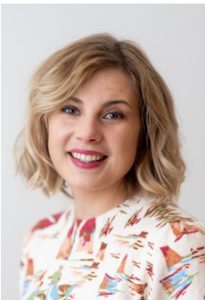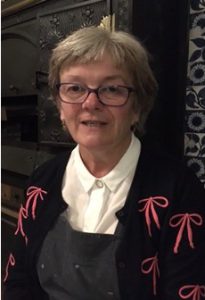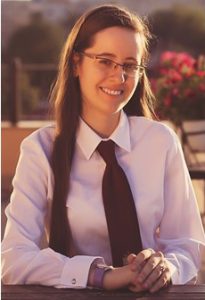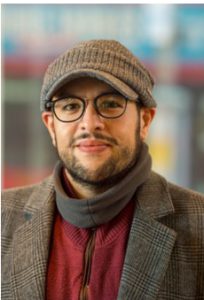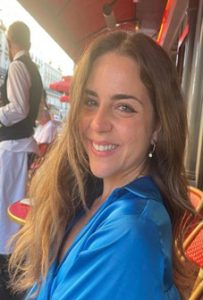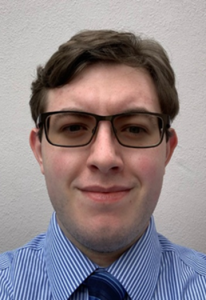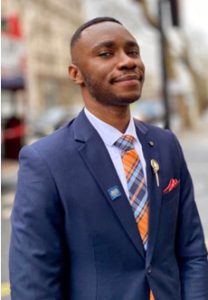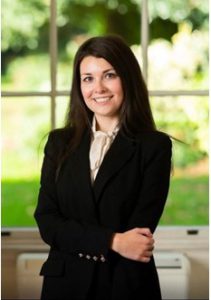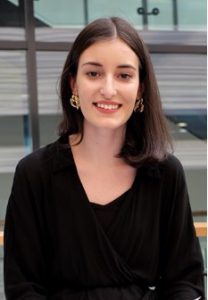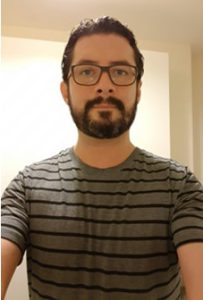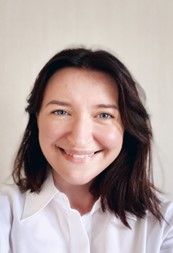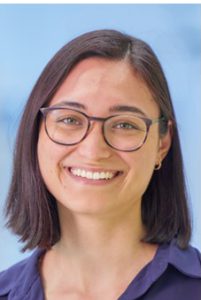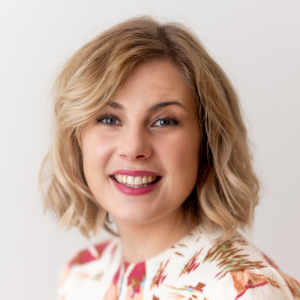Congratulations to the first round of winners of the 23/24 King’s Outstanding Thesis Prize!
Each year a limited number of awards are given to celebrate truly outstanding research and theses completed by King’s doctoral students. The prizes are nominated by the external examiners and are judged by a panel consisting of the College’s Director of Research Talent and the Chair of the Research Degrees Examinations Board. There are two rounds, in January and June, and these are the winners from the first round in January 2024.
Faculty of Life Sciences and Medicine
Dr Alice Beardmore-Gray
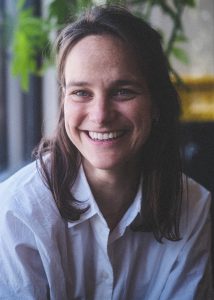 My journey in research began with my passion for improving women’s health, particularly in regions of the world where the maternal mortality rate remains unacceptably high (800 women die every day due to pregnancy related causes, and 95% of these deaths occur in low and middle income countries). Specialising in Obstetrics and Gynaecology, I realised that research is one of the most powerful tools we have to improve our clinical practice, and ultimately save lives. I was lucky enough to meet my brilliant supervisors (Prof Andrew Shennan and Prof Lucy Chappell) during the early stages of my clinical training, and this led to my PhD which evaluated the best time to offer birth to women with late preterm pre-eclampsia living in India and Zambia. Our trial, The CRADLE-4 Trial, found that planned early delivery significantly reduced the risk of stillbirth in this population, and was published in The Lancet (https://doi.org/10.1016/S0140-6736(23)00688-8). We have produced a short film about the trial (https://vimeo.com/879385985), which has also recently been featured in The Conversation (https://theconversation.com/early-births-between-34-and-37-weeks-for-moms-with-pre-eclampsia-can-reduce-baby-and-mother-deaths-210301). I was awarded the Royal College of Obstetricians and Gynaecologists Harold Malkin Prize in 2023 in recognition of this work, and I’m excited to continue my journey in clinical academia, as I embark upon a King’s Health Partners Post-Doctoral Fellowship, aiming to better understand pre-eclampsia associated acute kidney injury in low income countries. I’m incredibly grateful for the support and encouragement I have received along the way, and very proud to be a member of the KCL community.
My journey in research began with my passion for improving women’s health, particularly in regions of the world where the maternal mortality rate remains unacceptably high (800 women die every day due to pregnancy related causes, and 95% of these deaths occur in low and middle income countries). Specialising in Obstetrics and Gynaecology, I realised that research is one of the most powerful tools we have to improve our clinical practice, and ultimately save lives. I was lucky enough to meet my brilliant supervisors (Prof Andrew Shennan and Prof Lucy Chappell) during the early stages of my clinical training, and this led to my PhD which evaluated the best time to offer birth to women with late preterm pre-eclampsia living in India and Zambia. Our trial, The CRADLE-4 Trial, found that planned early delivery significantly reduced the risk of stillbirth in this population, and was published in The Lancet (https://doi.org/10.1016/S0140-6736(23)00688-8). We have produced a short film about the trial (https://vimeo.com/879385985), which has also recently been featured in The Conversation (https://theconversation.com/early-births-between-34-and-37-weeks-for-moms-with-pre-eclampsia-can-reduce-baby-and-mother-deaths-210301). I was awarded the Royal College of Obstetricians and Gynaecologists Harold Malkin Prize in 2023 in recognition of this work, and I’m excited to continue my journey in clinical academia, as I embark upon a King’s Health Partners Post-Doctoral Fellowship, aiming to better understand pre-eclampsia associated acute kidney injury in low income countries. I’m incredibly grateful for the support and encouragement I have received along the way, and very proud to be a member of the KCL community.
If you would like to find out more about Alice’s continuing research then you can find her on Twitter: @alicebgray
Dr Michelle Gibbs
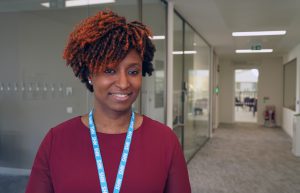 I am honoured and grateful to have been awarded an Outstanding Thesis Prize for my PhD in Nutritional Sciences. With the rollercoaster journey that my PhD was, with multiple maternity breaks and the COVID-19 pandemic interruptions, I am incredibly proud of what I was able to achieve. I am eternally grateful for the guidance and unwavering support of my PhD supervisors. I also offer my heartfelt gratitude to the patients, dietitians and key stakeholders, who participated in this research to make it such a success. Thanks also to my funder – without the financial support of The Dunhill Medical Trust via their Research Training Fellowship scheme, my PhD would not have been possible. To my husband and our three children, thank you for being an oasis of unconditional love, support and inspiration throughout my PhD journey.
I am honoured and grateful to have been awarded an Outstanding Thesis Prize for my PhD in Nutritional Sciences. With the rollercoaster journey that my PhD was, with multiple maternity breaks and the COVID-19 pandemic interruptions, I am incredibly proud of what I was able to achieve. I am eternally grateful for the guidance and unwavering support of my PhD supervisors. I also offer my heartfelt gratitude to the patients, dietitians and key stakeholders, who participated in this research to make it such a success. Thanks also to my funder – without the financial support of The Dunhill Medical Trust via their Research Training Fellowship scheme, my PhD would not have been possible. To my husband and our three children, thank you for being an oasis of unconditional love, support and inspiration throughout my PhD journey.
After completing my BSc, MSc, PGDip, and MRes, I knew I wanted to pursue a PhD and developed my research ideas while I was working as a Dietitian in clinical practice in the NHS. My professional interests in malnutrition and oral nutritional support led me to ask key questions about how, why, for whom, and to what extent dietetic consultations worked, how they were experienced by nutritionally vulnerable older adults and other key stakeholders and how their value was perceived. These questions led me to use a convergent parallel mixed method approach to develop a novel programme theory for dietetic consultations that explained their underlying causal mechanisms, contextual influences and how they worked to generate outcomes, as well as understand how oral nutritional support consultations were experienced by older adult patients, their carers and the consulting dietitians, in various clinical contexts.
Since finishing my PhD, I’ve been putting my research knowledge and skills to good use in my current NHS role. I also continue to support student dietitian training at KCL. I am grateful for the opportunity to advance my clinical academic career in dietetics, with exciting post-doctoral plans to advance the body of work I began during my PhD. Further to this, I am engaged in various forms of dissemination at both local and international levels. Overall, I am grateful to be able to do purposeful work, both within and beyond academia, that contributes to improving the lives of others.
If you’d like to see more about Michelle’s current research you can follow her on Twitter here: @drmichellegibbs
Dr Mathieu Ruthven
I am delighted and honoured to receive a King’s Outstanding Thesis Prize. I am grateful to my PhD thesis examiners Prof António Teixeira and Dr Chris Carignan f or the award nomination, my supervisors Dr Andy King and Dr Marc Miquel for their guidance and support throughout my time at King’s, and Health Education England (HEE) and the National Institute for Health and Care Research (NIHR) for funding my PhD.
or the award nomination, my supervisors Dr Andy King and Dr Marc Miquel for their guidance and support throughout my time at King’s, and Health Education England (HEE) and the National Institute for Health and Care Research (NIHR) for funding my PhD.
Prior to starting a PhD, I worked as a medical physicist specialised in magnetic resonance (MR) imaging at Barts Health NHS Trust. As a health and care professional, I was eligible to apply for a HEE-NIHR Doctoral Clinical and Practitioner Academic Fellowship which enabled me to undertake a PhD while continuing my professional practice and development. My PhD was clinically focused and multidisciplinary, at the interface of MR imaging, artificial intelligence (AI) and clinical assessment of speech. Its ultimate goal was to improve the clinical management and treatment of patients with velopharyngeal insufficiency. The main contributions of my PhD towards this goal were the development of AI-based methods to automatically extract clinically relevant information from MR images of the vocal tract, and creating and making publicly available a dataset to enable others to develop similar methods. More information about the methods and dataset is available in the following journal articles: Ruthven et al. (2021), Ruthven et al. (2023a), Ruthven et al. (2023b).
The outputs of my PhD laid some of the foundations for a successful research funding grant application to Barts Charity. This funding has enabled further research to refine and extend the techniques and bring them closer to clinical translation.
If you would like to find out more about Mathieu’s research you can find him on LinkedIn here: https://www.linkedin.com/in/matthieu-ruthven/
Dr Maria Ibrahim
I am honoured to have received this Outstanding Thesis Prize from King’s. My PhD looked at deceased donor kidney transplantation in the UK. I examined how organs from deceased donors with perceived higher risk characteristics were utilised by UK transplant clinicians, and subsequent patient outcomes using UK transplant registry data. Globally, this is an important issue, as deceased donors become older, with more co-morbidities, thus posing a risk of poor long-term outcomes to potential recipients.
I am a nephrologist by training, and though this gave me an insight into the clinical application of my work, I learnt statistical skills and coding in order to analyse data from the NHS Blood and Transplant (NHSBT) registry.
My thesis has resulted in three first author publications (PMID 31758833, 32690721, and 36706063) and I was able to contribute to a further five papers (PMID 36066902, 35185366, 33870619, 33756062, and 34514110).
During the course of my PhD, I was able to identify that many perceptions around ‘higher risk’ organs are inaccurate, thus encouraging the broadening of the deceased donor pool and better outcomes for patients awaiting a transplant. I helped develop transplant outcome prediction tools, used extensively by UK transplant clinicians to support patient decision-making.
I have received the support of many individuals throughout the course of my thesis and am especially grateful to my examiners for their nomination, to the statistics and clinical studies team at NHSBT for their continual guidance, and to my supervisors Chris Callaghan, John Forsythe and Rachel Johnson for their unwavering faith in me.
Following my research time I am back to full time clinical work but hope to use the skills I have developed to pursue dual clinical and academic roles in the future.
Institute of Psychiatry, Psychology and Neuroscience
Dr Johanna Keeler
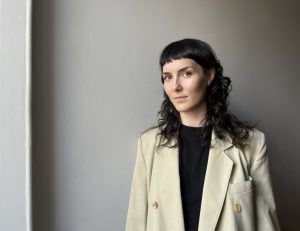 I am thrilled to have been awarded a King’s Outstanding Thesis Prize and would like to thank my brilliant examiners for the nomination and for their thoughtful engagement with the thesis, my supervisors Dr Hubertus Himmerich and Professor Janet Treasure for their endless support and guidance, and the Medical Research Council for funding my research.
I am thrilled to have been awarded a King’s Outstanding Thesis Prize and would like to thank my brilliant examiners for the nomination and for their thoughtful engagement with the thesis, my supervisors Dr Hubertus Himmerich and Professor Janet Treasure for their endless support and guidance, and the Medical Research Council for funding my research.
Prior to my time at KCL, I studied Psychology (Bsc, University of Exeter). Prior to that, my first job as an 18-year-old was working as a support worker in neurosurgical theatres, which sparked my interest in the workings of the brain and particularly in neuropsychology. My interests in neurobiology were further cemented during my undergraduate studies where I was fortunate to undertake some fantastic research placements that utilised methods and study designs including MRI, neuropsychology, and service evaluation/improvement work. Here I also co-founded an eating disorders peer support group for students. The experiences I had progressed my interests in the mind-body interface, translational research, and lived/living experience involvement, which had a huge influence on my PhD project.
My PhD thesis integrated several methodologies such as structural MRI, neuropsychology, investigations of inflammatory markers and growth factors, and qualitative methods, to examine brain changes in anorexia nervosa. A highlight of my research was translating basic research findings to the lived experience using qualitative methodology. I have disseminated these findings through delivering NHS training to a wide range of clinicians and am hoping to develop some psychoeducational resources for service users, clinicians and carers of people with eating disorders.
Several of the studies I conducted throughout my PhD were part of the groundwork that supported a grant application for a randomised controlled trial looking at the potential of oral ketamine to alleviate depressive symptoms in people with AN and treatment-resistant depression. We recently received funding for this project from the Medical Research Council, and I am currently employed as a postdoc at KCL to prepare the study which is scheduled to start in 2025.
You can find more about Johanna’s current research via her Twitter (@jhnnklr) or that of her team (@kingsedresearch) or via her research gate (https://www.researchgate.net/profile/Johanna-Keeler) or Pure profiles (https://kclpure.kcl.ac.uk/portal/en/persons/johanna-keeler).
Dr Laura Sichlinger
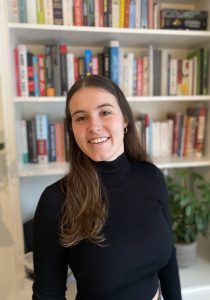 I am honoured to have received the Outstanding Thesis Prize for my PhD research. My thesis, “A developmental perspective on ZNF804A gene function,” delved into the mechanisms of schizophrenia susceptibility and gene function in neurodevelopment. Under the guidance of Prof Deepak Srivastava and Prof Anthony Vernon, I explored the fascinating world of human-induced pluripotent stem cells and CRISPR/Cas9 genome editing, shedding light on ZNF804A’s contribution to synaptogenesis and local protein translation in neurodevelopment. I am immensely grateful for their mentorship and support throughout my doctoral journey.
I am honoured to have received the Outstanding Thesis Prize for my PhD research. My thesis, “A developmental perspective on ZNF804A gene function,” delved into the mechanisms of schizophrenia susceptibility and gene function in neurodevelopment. Under the guidance of Prof Deepak Srivastava and Prof Anthony Vernon, I explored the fascinating world of human-induced pluripotent stem cells and CRISPR/Cas9 genome editing, shedding light on ZNF804A’s contribution to synaptogenesis and local protein translation in neurodevelopment. I am immensely grateful for their mentorship and support throughout my doctoral journey.
Prior to pursuing my PhD, I completed an MSc in Neuroscience at KCL and a BA in Phonetics and Speech Processing at the University of Munich. These experiences laid the groundwork for my passion for neuroscience and brain disorders.
Currently, I am privileged to be a member of the Heller lab (lead by Prof Elizabeth Heller) at the University of Pennsylvania and the ENDD team at the Children’s hospital of Philadelphia, where we are dedicated to advancing gene-targeted therapies for rare neurodevelopmental disorders such as STXBP1 and SYNGAP1-related intellectual disability.
Beyond my research, I am committed to fostering inclusivity and equality in STEM. During my PhD I had the honour to be co-president of Women of the Wohl, a student-led equality network, advocating for the rights of womxn and marginalised groups in the scientific community. I believe that diversity is not only essential for scientific progress but also enriches the fabric of our society.
If you want to see more about Laura’s current research then you can find her on Twitter via @LSichlinger
Faculty of Law
Dr Farnush Ghadery
I’d like to thank the committee for awarding my PhD project the KCL Outstanding Thesis Prize. My research rests on the intellectual labour and commitment of  feminist scholars and activists who paved the way and continue to struggle for freedom and equality across the world. In my thesis, I developed ‘transnational legal feminism’ as a methodology that argues for the contextualisation of international feminist legal praxis by being informed by local communities and forms of knowledge, which are often excluded from international fora. Focusing on Afghanistan, I attempted to demonstrate the important work that Afghan women’s rights activist have undertaken on the ground following the 2001 military invasion and how international legal and feminist practice should interact more with these actors and their practices. Completing the Transnational Law LLM at KCL before my PhD was instrumental in equipping me with the critical skills needed to undertake this work. The PhD was further made possible through the generous Dickson Poon Postgraduate Research Scholarship. I now work as a Senior Lecturer in Law at London South Bank University where I continue my research highlighting and challenging colonial, racialised, and gendered hierarchies in international law. I am currently working on my monograph based on the thesis. Most recently, I co-founded the Feminist Third World Approaches to International Collective which seeks to amplify scholarship and practice at the intersection of critical feminisms and international law as well as create a space of solidarity and support for those working in this field. I remain committed to the struggle for gender equality and have been active in the ongoing Woman, Life, Freedom movement for equality and freedom in Iran.
feminist scholars and activists who paved the way and continue to struggle for freedom and equality across the world. In my thesis, I developed ‘transnational legal feminism’ as a methodology that argues for the contextualisation of international feminist legal praxis by being informed by local communities and forms of knowledge, which are often excluded from international fora. Focusing on Afghanistan, I attempted to demonstrate the important work that Afghan women’s rights activist have undertaken on the ground following the 2001 military invasion and how international legal and feminist practice should interact more with these actors and their practices. Completing the Transnational Law LLM at KCL before my PhD was instrumental in equipping me with the critical skills needed to undertake this work. The PhD was further made possible through the generous Dickson Poon Postgraduate Research Scholarship. I now work as a Senior Lecturer in Law at London South Bank University where I continue my research highlighting and challenging colonial, racialised, and gendered hierarchies in international law. I am currently working on my monograph based on the thesis. Most recently, I co-founded the Feminist Third World Approaches to International Collective which seeks to amplify scholarship and practice at the intersection of critical feminisms and international law as well as create a space of solidarity and support for those working in this field. I remain committed to the struggle for gender equality and have been active in the ongoing Woman, Life, Freedom movement for equality and freedom in Iran.
If you’d like to find out more about Farnush’s current research then please check out her LinkedIn page: https://www.linkedin.com/in/farnush-ghadery/
Faculty of Natural, Mechanical and Engineering Sciences
Dr Gergely Bodo
I feel honoured to have received the King’s Outstanding Thesis Prize for my research on Stochastic Analysis for Cylindrical Lévy Processes. This accomplishment would not have been possible without the exceptional guidance and support from my supervisor, Markus Riedle (Department of Mathematics).
Moreover, I am immensely grateful to my thesis examiners, Rama Cont (University of Oxford) and Stefan Geiss (University of Jyväskylä), not only for nominating me for this award, but also for showing a genuine interest in my research by providing insightful suggestions on possible directions for future work. Their mathematical expertise and careful reading of my thesis led to a rather stimulating discussion during my defence.
In my thesis, together with Professor Riedle, we laid down the theoretical foundations necessary for the successful application of cylindrical Lévy processes as models of random perturbations of infinite-dimensional systems. By developing a comprehensive theory of stochastic integration with respect to cylindrical Lévy processes, our work allowed for the generalisation of fundamental tools in stochastic analysis such as Itô’s formula or the stochastic dominated convergence theorem. These results paved the way for the consideration of stochastic evolution equations driven by cylindrical Lévy processes.
During my time as a PhD student at King’s, I was presented with numerous opportunities to explore the mathematical landscape by giving talks at international conferences, attending summer schools and going on research visits. I would like to thank the Department of Mathematics for making all of these financially feasible.
After finishing my PhD, I joined the stochastics group of the Korteweg-de Vries Instituut of the University of Amsterdam, where I am currently a postdoctoral researcher under the guidance of Sonja Cox.
Dr Yannic Rath
I feel very honored, and I am immensely grateful to be receiving the 2023/2024 King’s outstanding thesis award, which I very much see as a recognition of all the great work done in the group of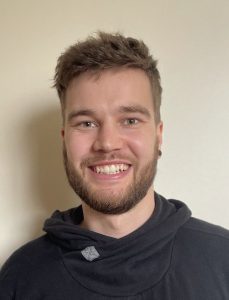 my PhD supervisor Dr George Booth. I explicitly want to thank him, but also all other past and present collaborators, for providing outstanding support and a stimulating research platform to pursue highly interesting research questions. I also want to extend my gratitude to Prof. Andrew Green and Dr Stephen Clark for the examination of my thesis and nominating me for this award.
my PhD supervisor Dr George Booth. I explicitly want to thank him, but also all other past and present collaborators, for providing outstanding support and a stimulating research platform to pursue highly interesting research questions. I also want to extend my gratitude to Prof. Andrew Green and Dr Stephen Clark for the examination of my thesis and nominating me for this award.
My PhD at King’s College allowed me to build upon my great interest in studying scientific phenomena with computational approaches, which I developed in previous Physics and Computer Science courses at the Leibniz University Hannover and at Imperial College London. My PhD research focused on the development of novel computational tools to simulate the intricate interplay of particles on the quantum scale underpinning the characteristics of various types of matter. The sheer complexity of the quantum physical laws of nature limits accurate computational simulations, making suitable approximations necessary for tractable applications. Complementing a broad variety of algorithms tackling this long-standing task on various levels of abstraction, we were able to introduce a novel numerical toolbox expanding the predictive abilities of numerical simulations by bridging physical intuition with modern machine learning techniques.
Building on the wonderful experience of my time at King’s College, I continue to follow my research interests as a computational scientist. I recently joined the National Physical Laboratory, where my focus remains the development of algorithms for the description, study, and utilization of quantum physical principles. I am looking forward to continuing studying interesting scientific questions, developing practical computational tools, and communicating research highlights to a broader community.
Faculty of Nursing, Midwifery and Palliative Care
Dr Lesley Williamson
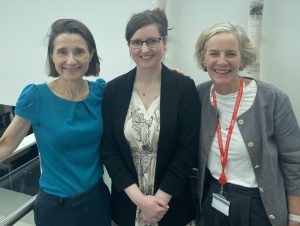 I am delighted and honoured to have been awarded one of the 2023/24 King’s Outstanding Thesis Prizes. I am hugely grateful to my examiners, Professor Susan Shenkin and Professor Bridget Johnston for their nomination, and my PhD supervisors, Professor Katherine Sleeman and Professor Catherine Evans for their support, guidance, and patience.
I am delighted and honoured to have been awarded one of the 2023/24 King’s Outstanding Thesis Prizes. I am hugely grateful to my examiners, Professor Susan Shenkin and Professor Bridget Johnston for their nomination, and my PhD supervisors, Professor Katherine Sleeman and Professor Catherine Evans for their support, guidance, and patience.
My thesis was generously funded by the Alzheimer’s Society, Cicley Saunders International, NIHR Maudsley Biomedical Research Centre, and The Atlantic Philanthropies. It focuses on the determinants of emergency department (ED) attendance among people with dementia approaching the end of life. Mapped against the phases of a health programme planning model, I conducted a cohort study of routinely collected hospital and mortality data, a qualitative interview study with people living with dementia and current and bereaved caregivers, and a mixed methods integration to develop a conceptual model and key components of an intervention programme aiming to safely reduce ED attendance among people with dementia.
My PhD was informed by my longstanding commitment to improve dementia care, influenced by my background in psychology, medicine and clinical leadership, and my work as a psychiatry trainee, former National Medical Director’s Clinical Fellow, and more recently, King’s Parliamentary Research intern. My thesis was greatly enriched by the valuable contributions of members of an expert panel of public representatives affected by dementia and the support of Alzheimer’s Society Research Network Monitors.
After submitting my thesis, I led the development and Parliamentary launch of a policy brief calling for better palliative and end-of-life care for people affected by dementia. I continue to promote the brief, which includes successfully submitting it to the World Health Organisation’s Global Dementia Observatory Knowledge Exchange Platform (GDO KEP).
I continue to research dementia and end-of-life care as a Research Associate at the Cicely Saunders Institute and NIHR Health and Social Care Workforce Research Unit. As a Dem-Comm fellow, I am also one of the Dementia Community Research Network (DCRN) coordinators, working with public, community and research partners to reduce inequalities in research involvement among people from minoritised ethnic communities.

